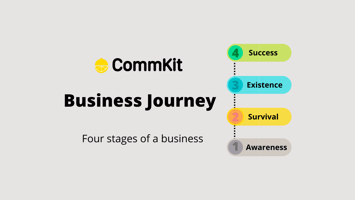Starting or running a home-based business is a much easier and more affordable endeavor today. With...
Why build online marketplace for Local Community?
 There are marketplaces for almost everything now - at least that's how it feels. Many toss this phrase 'community marketplace' around quite often. Without context, it's hard to understand the true meaning of it.
There are marketplaces for almost everything now - at least that's how it feels. Many toss this phrase 'community marketplace' around quite often. Without context, it's hard to understand the true meaning of it.Let's dig in a bit deeper and analyze the initial success of online marketplaces, their challenges in today's information age, and how many of them really live up to the term 'Community marketplace'.
Online marketplace
Since the dawn of the information age, one of the defining moments that added direct value to people's life came in the form of marketplaces.

Online marketplaces bridged the gap in traditional brick-and-mortar businesses, where centrally managed supply chains couldn't keep up with the changing user demands, or adapt and deliver on time. For so many years traditional businesses got comfort in the fact that they had a monopoly over the choice and options they offer to sell. Such choices are seldom made with user demand, rather it's driven by profit margin, sale volume, etc.
Online marketplaces democratized the space by providing sellers with a platform to reach users directly. Any change in user demand could be identified and products or services adapted to such demands quickly. Those who didn't adapt lost business over time and eventually got wiped out. Ever since so many variants of marketplace websites got created and have been very successful. Starting with eBay, many more marketplaces including Amazon, Etsy, and our own trade-me, had runaway success in this space, primarily due to their ability to innovate new ways to deliver value for consumers and expand the market beyond their initial offers.
There are still many more niches to be explored and catered to, that giants in the online marketplace couldn't reach out. They seem to have become victims of their own success.
Challenges in existing marketplaces
In New Zealand, Trade me and more recently Facebook marketplace dominate the scene for online marketplaces. They have 1000's of sellers and many hundreds of thousands of listings every day. For many providers on these platforms, the ease of becoming a seller with an online store is very attractive, especially for non-traditional players. As a buyer, consumers find it cheaper to buy online with comparable products in the market. Sometimes, these products are unavailable in traditional local markets. Its a 'win-win-win' nirvana state for all participants in these online marketplaces.

However, if you dig a little deeper you might notice it's a version of 'Brick and mortar' business. Retail businesses and professional seller platforms are preferred sellers in these marketplaces rather than households. It's a volume game that these traditional retail businesses know quite well. They're happy to pay extra for ad placements, promotions, etc within the platform and it's a profitable proposition for the marketplaces as well.
Just try a search for things like fresh produce in your local neighbourhoods on TradeMe or Facebook marketplace. They tout features like 'geo-tagging' as a way to promote buying local. But most listings' primary targets were wider urban populations for things that are other than essentials for the most part. Don't get me wrong - I'm all in for buying a pre-loved, hardly used iPhone 14 for half price, because the owner needs to buy the latest and greatest iPhone. But that's not what buying local is all about.
We believe real value add marketplaces can provide should come from listening to end-user requirements and enabling households to explore and interact within their own communities.
We need community marketplaces.
What is a community marketplace?
Community marketplaces are built around the needs of a local community. It facilitates buying, selling or trading products and services among residents and housholds in the community. It can also act as an incubator for local entrepreneurs, promoting more economic activity within the community.
Key features
- Local presence
- Community focused
- Unique products and services
- Promote entrepreneurship
- Mentoring and job creation
- Build trust
- Enhance cooperation among local residents
Community at its core
At CommKit, our approach to building a marketplace starts with local communities and their needs.

We are focusing on two aspects of a healthy community:
- Self-sustaining food culture that reduces food waste, promotes local produce, and reflects food diversity in the community.
- Self-sufficient households with multiple streams of income are better at handling family emergencies and providing for community economic well-being.
Our product and service offerings would anchor on achieving these aspects along with promoting earth-friendly practices.
Every CommKit community gets built from the ground up by the local community based on the unique needs of their communities. While the marketplace provides consistency with its processes and guidelines to prioritize your requirements, the products and services are very much based on the local community and its needs.
With this approach, our local small business marketplace app CommKit, aims to create community marketplaces that can transform the way we live and interact with extended families in our local community. As of late 2022, we have presence in 195+ communities across New Zealand.
Together, We can build communities that support each other and grow together!!



